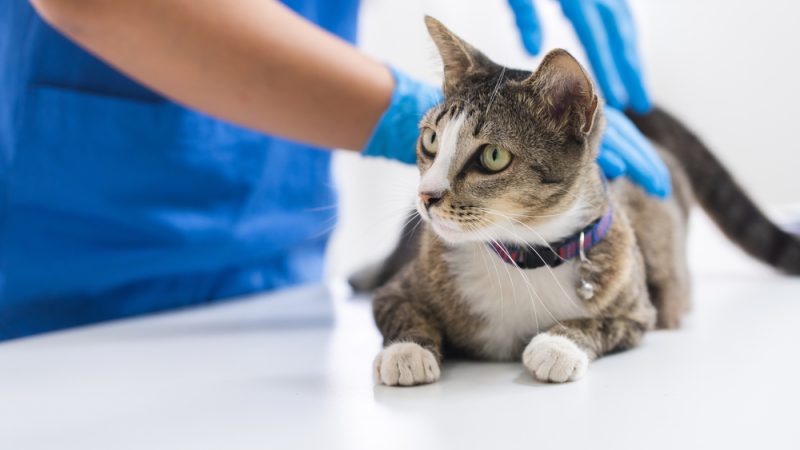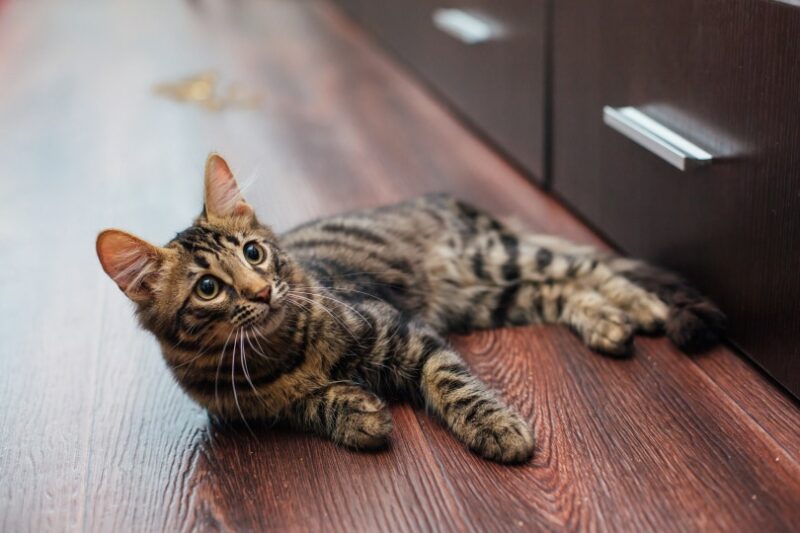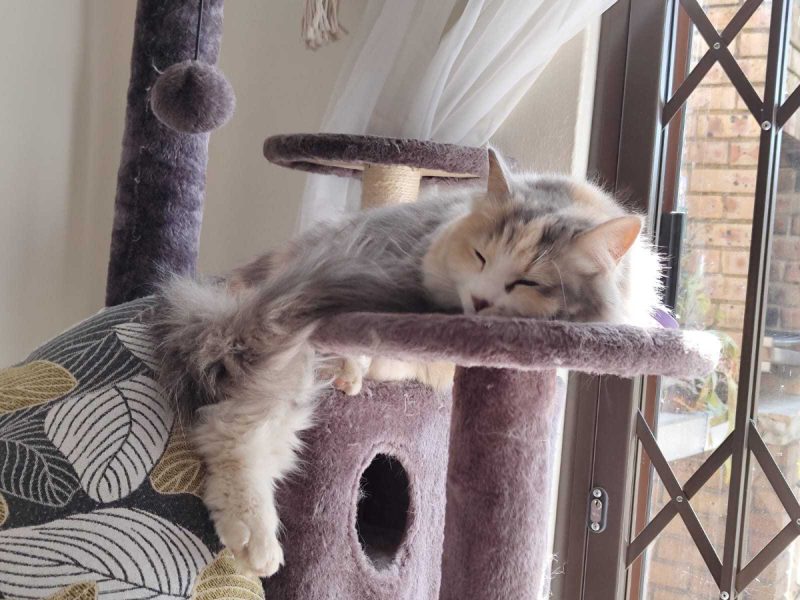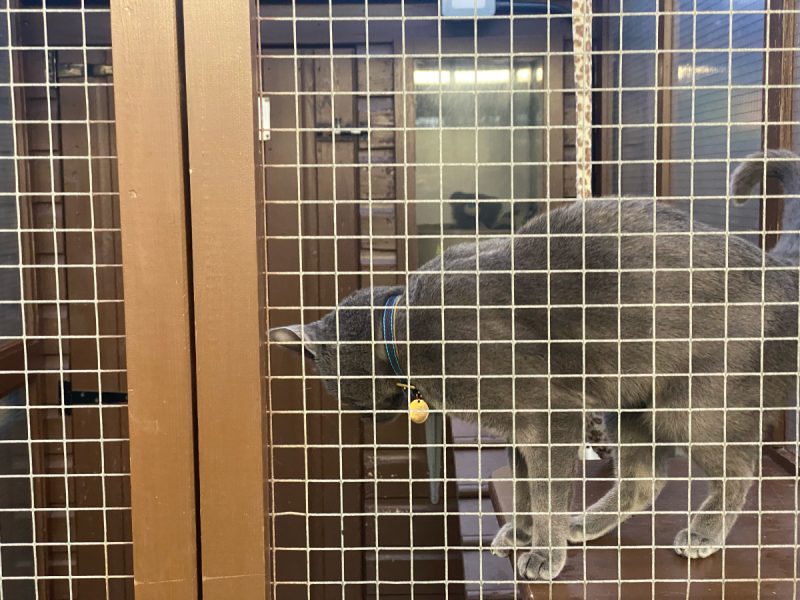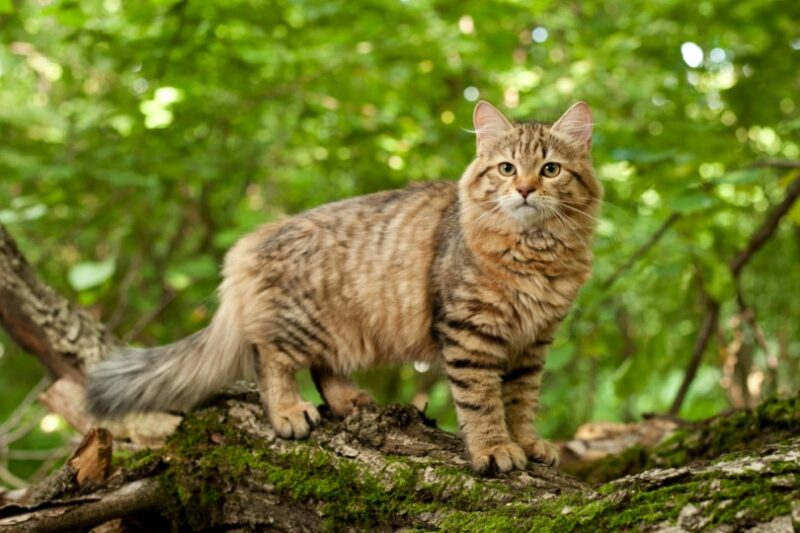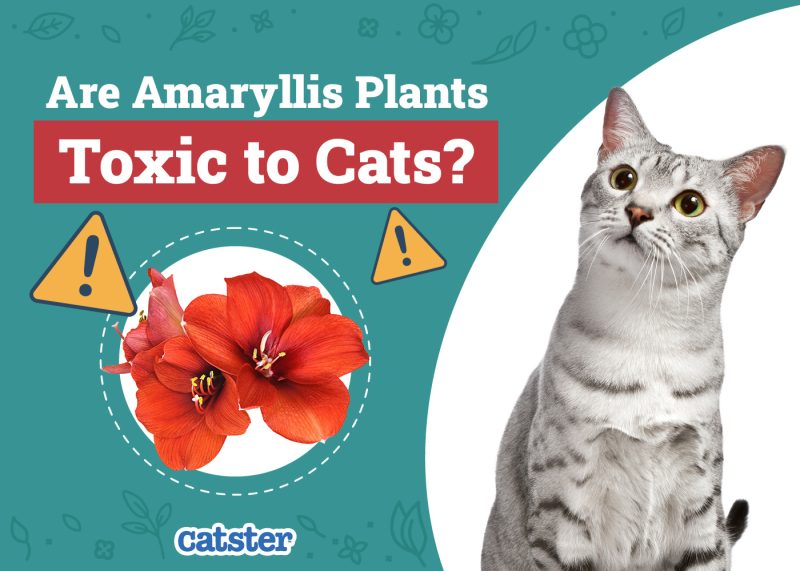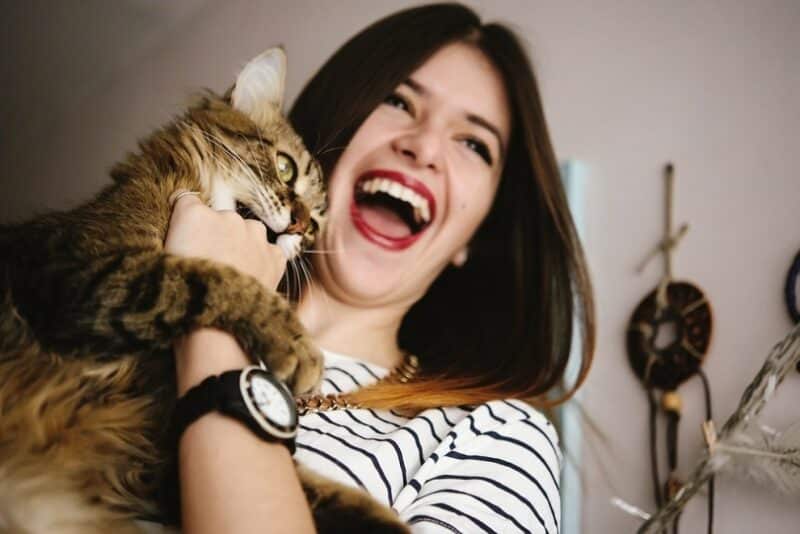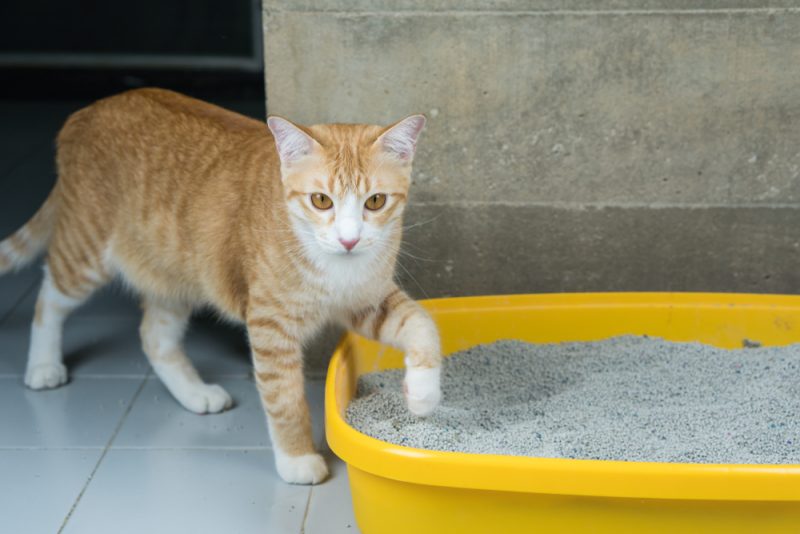Second only to trauma, feline leukemia virus (FeLV) is a leading cause of death in cats worldwide. In 2010, statistics suggested that it affected 2–3% of cats1, making it a crucial disease to consider for the health and well-being of the cat population. Fortunately, testing and vaccination programs have reduced the prevalence of the disease and enabled us to have more control over the spread of the virus among our feline friends.

What Is FeLV?
FeLV belongs to a family of viruses called “retroviruses.” It can cause tumors and significant anemia (low red blood cell count in the body), but it also suppresses the immune system, which leads to a whole host of problems because FeLV-positive cats are unable to fight diseases appropriately.
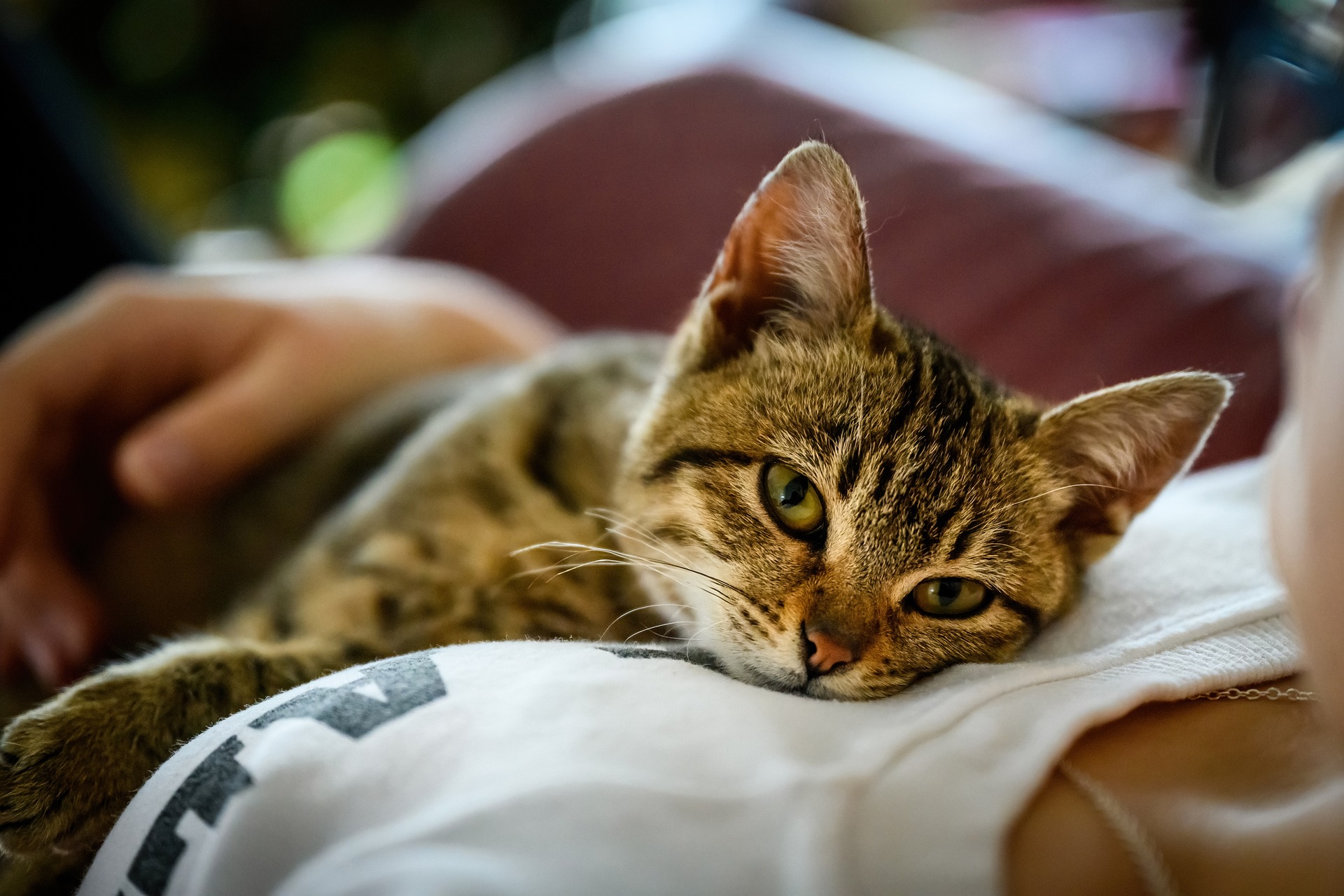
What Are the Signs of FeLV?
The signs are progressive over time, and early in the infection, cats will show no clinical signs of the disease. However, after weeks to months, they will begin to deteriorate, and you may notice the following:
- Weight loss
- Poor appetite
- Lackluster coat
- Fever
- Swollen lymph nodes
- Pale gums
- Skin, bladder, and respiratory infections
- Diarrhea
- Seizures
- Reproductive issues
- Inflammation of the mouth and gums
If you are concerned about the health and well-being of your pet, seek veterinary advice for the best course of action.
If you need to speak with a vet but can't get to one, head over to PangoVet. It's an online service where you can talk to a vet online and get the advice you need for your pet — all at an affordable price!

What Are the Causes of FeLV?
FeLV-infected cats pass the virus in their saliva, nasal discharge, feces, urine, and milk. This means they can transfer the virus by having close contact with other cats, including through biting, grooming/ licking, and shared feeding dishes, water bowls, or litter trays. An infected mother can also pass it to her kittens while pregnant and through milk while nursing.
That said, most cats are infected with FeLV by exposure to other infected cats through prolonged shared contact or fighting. Outdoor unsupervised cats that are allowed to roam are the most likely candidates for the disease, with unneutered males (who tend to roam farther, be more territorial, and seek contact with females) being at the greatest risk. Cats are also more susceptible to infection when they are very young or have an underlying illness.
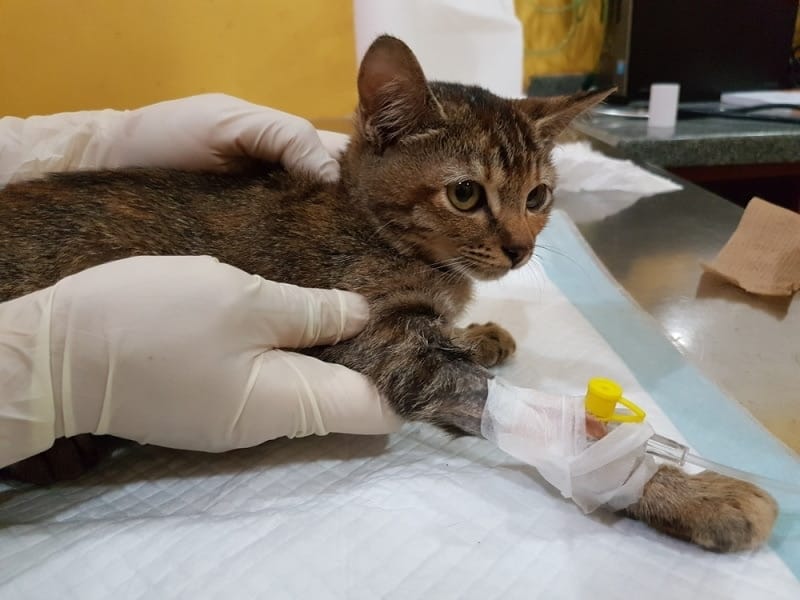
What Happens If My Cat Is Exposed to FeLV?
Two things can happen when a cat is infected with FeLV:
- They develop a progressive FeLV infection.
- They develop a regressive or abortive infection.
Cats with a progressive infection are most likely to develop the severe clinical signs associated with FeLV. They will have a suppressed immune system, making them susceptible to infection, and they can also develop lymphoma (cancer of the lymphatic system) or leukemia (cancer of the blood cells). Sadly, these cats tend not to do well and are persistently contagious to other cats.
Those with a regressive infection are more likely to have milder clinical signs of infection. After exposure, the virus will spread into the bone marrow and organs before the body can eliminate it from the bloodstream. The infected cat won’t normally develop further disease unless their immune system becomes compromised and it is “reactivated.” Infected cats are not contagious unless they have the active form of FeLV.
Not all cats that are exposed to the virus will develop an infection. It is a delicate balance between the virus and the immune system, and approximately 1/4 of the cats that are exposed to FeLV will be able to eliminate it before it spreads to the rest of the body. This is called an “abortive” infection.
How Do I Care for a Pet With FeLV?
If your cat has been diagnosed with FeLV, you should develop a good relationship with your veterinarian, as they will advise you on your best course of treatment. Every vet will treat a FeLV-positive cat differently, depending on the clinical signs that your cat presents with.
Unfortunately, there is no cure for FeLV, so treatment is aimed at managing the specific problems caused by the disease. For example, this could involve managing gum inflammation with dental treatment, providing antibiotics for secondary infections, and treating the anemia (where appropriate) with blood transfusions. Treatment for each cat will vary depending on their case but is aimed at extending a good quality of life for as long as possible.
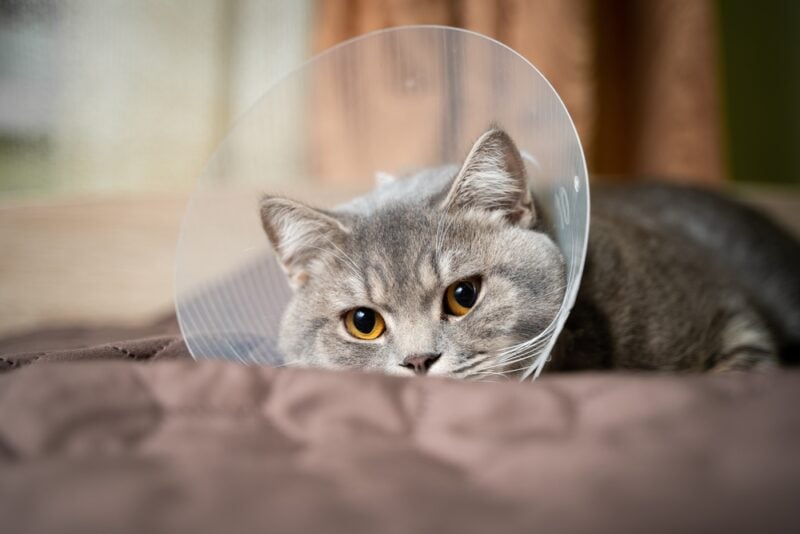

Frequently Asked Questions (FAQs)
How Is FeLV Diagnosed?
The simplest way to diagnose FeLV in a cat is through a blood test. Your veterinarian will be able to do this quick test in-house, and it involves taking a small amount of blood and using a FeLV SNAP test, which will demonstrate either a positive or negative result.
Cats that have a “regressive” infection may be slightly more complicated because of the variations of the viral levels in the blood. If sick cats have a negative result, they may need to be tested again, or they may need to have further specialized blood tests that will be sent to a laboratory to confirm infection.
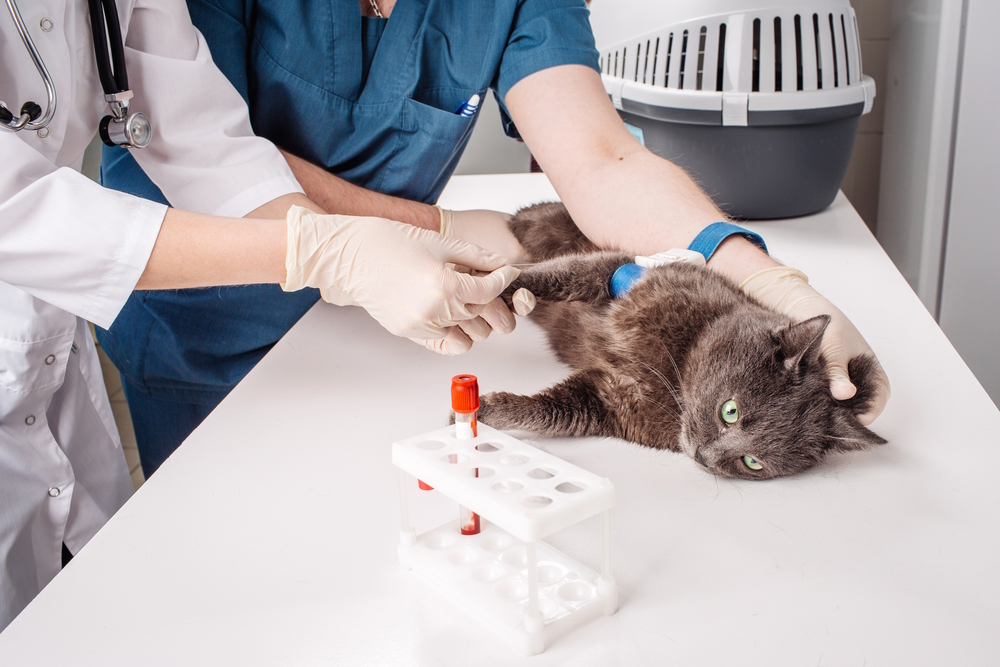
How Can FeLV Be Prevented?
There is an effective vaccination available for the prevention of FeLV infection. This isn’t necessarily a “core” vaccination, but it’s recommended for any cats that have the potential to be exposed to FeLV-positive cats. These include cats in multi-cat households and cats that have unsupervised access to the outdoors where they could cross the path of another cat. Similarly, all kittens should be vaccinated against it, as their future lifestyles are often unknown, and they are highly susceptible to infection.
If you are introducing a new cat to your household, especially one that may have been exposed to FeLV, you should get them tested before introducing them to your other cats. In large colonies of cats, FeLV can be controlled through routine testing, quarantine, and vaccination schemes.
Your cat will be far less vulnerable to infection if they are kept indoors and aren’t allowed to roam. Also, be attentive to your cat’s signs to treat the illness as soon as possible.
- Inappropriate urination and defecation
- Changes in social behavior/ hiding
- Changes in activity levels
- Altered sleeping habits
- Altered appetite and thirst
- Unexplained by weight loss or weight gain
- Bad breath
- Vocalization
- Not grooming/poor coat
- Signs of stress
How Long Can a Cat Live With FeLV?
Sadly, many cats will eventually die from the disease or will require euthanasia due to poor quality of life and suffering. The average projected lifespan for FeLV-positive cats is approximately 2 to 3 years, but with adequate treatment from your veterinarian, these years can offer a good quality of life.

Conclusion
While feline leukemia virus is a devastating diagnosis for cats, with adequate treatment, they can still have a good quality of life for several years. Early supportive treatment is key in the longevity of FeLV-positive cats, and monitoring for any signs of feline illness is vital.
It’s crucial to keep up to date with your cat’s vaccinations and to always be in conversation with your veterinarian about preventative measures for FeLV and other diseases.
Featured Image Credit: mojo cp, Shutterstock
